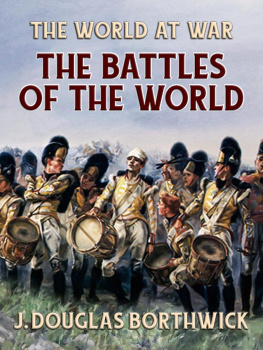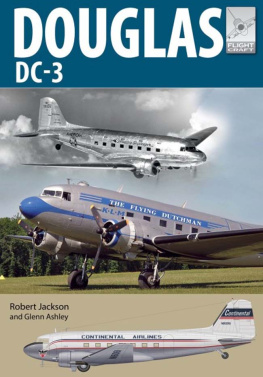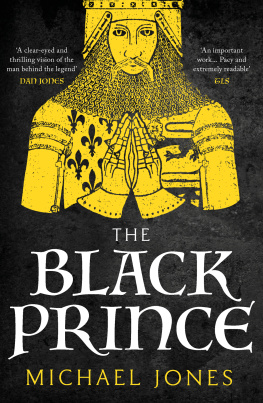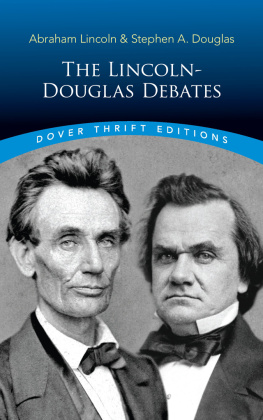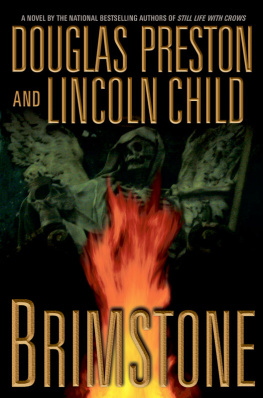W. DOUGLAS NEWTON
AUTHORIZED CORRESPONDENT IN AMERICA WITH
H. R. H. THE PRINCE OF WALES
AUTHOR OF "GREEN LADIES," "THE WAR CACHE," ETC.
D. APPLETON AND COMPANY
NEW YORK LONDON
1920
COPYRIGHT, 1920, BY
D. APPLETON AND COMPANY
TO
"A. B."
AND THE CARGO OF "CARNARVON."
PREFACE
It was on Friday, August 1, 1919, that "the damned reporters" and the Times correspondent's hatbox went on board the light cruiser Dauntless at Devonport.
The Dauntless had just arrived from the Baltic to load up cigarettesat least, that was the first impression. In the Baltic the rate of exchange had risen from roubles to packets of Players, and a handful of cigarettes would buy things that money could not obtain. Into the midst of a ship's company, feverishly accumulating tobacco in the hope of cornering at least the amber market of the world, we descended.
Actually, I suppose, His Royal Highness the Prince of Wales had been the first interrupter of the Dauntless' schemes. Lying alongside Devonport quay to refitin that way were the cigarettes covered upword was sent that the Dauntless with her sister ship, Dragon, was to act as escort to the battle-cruiser Renown when she carried the Prince to Canada.
Though he came first we could not expect to be as popular as the Prince, and when, therefore, those on board also learnt that the honour of acting as escort was to be considerably mitigated by a cargo from Fleet Street, they were no doubt justified in naming us "damned."
We did litter them up so. The Dauntless is not merely one of the latest and fastest of the light cruisers, she is also first among the smartest. To accommodate us they had to give way to a rash of riveters from the dock-yard who built cabins all over the graceful silhouette. When our telegrams, and ourselves, and our baggage (including the Times' hatbox) arrived piece by piece, each was merely an addition to the awful mess on deck our coming had meant.
Actually we could not help ourselves. Dock strikes, ship shortage and the holiday season had all conspired to make any attempt to get to Canada in a legitimate way a hopeless task. Only the Admiralty's idea to pre-date the carrying of commercial travellers on British battleships could get us to the West at all. The Admiralty, after modest hesitation, had agreed to send us in the Dauntless, and before the cruiser sailed we all realized how fortunate we were to have been unlucky at the outset.
We sailed on August 2 from Devonport, three days before Renown and Dragon left Portsmouth, and when one of us suggested that this was a happy idea to get us to St. John's, Newfoundland, in order to be ready for the Prince, he was told:
"Not at all, we're out looking for icebergs."
We were to act as the pilot ship over the course.
We found icebergs, many of them; even, we nearly rammed an iceberg in the middle of a foggy night, but we found other things, too.
We found that we had got onto what the Navy calls a "happy ship," and if anybody wants to taste what real good fellowship is I advise him to go to sea on what the Navy calls "a happy ship." However much we had disturbed them, the officers of the Dauntless did not let that make any difference in the warmth of their hospitality. We were made free of the ward-room, and that Baltic tobacco. We were initiated into "The Grand National," a muscular sport in which the daring exponent turns a series of somersaults over the backs of a line of chairs; and we were admitted into the raggings and the singing of ragtime.
We were made splendidly at home. Not only in the ward-room that did a jazz with a disturbing spiral movement when we speeded up from our casual 18 knots to something like 28 in a rough sea, but from the bridge down to the boiler room, where we watched the flames of oil fuel making steam in the modern manner, we were drawn into the charmed circle of comradeship and keenness that made up the essential spirit of that fine ship's company.
The "damned reporters," on a trip in which even the weather was companionable, were given the damnedest of good times, and it was with real regret that, on the evening of Friday, August 8, we saw the high, grim rampart wall of Newfoundland lift from the Western sea to tell us that our time on the Dauntless would soon be finished.
Actually we left the Dauntless at St. John's, New Brunswick, where we became the guests of the Canadian Government which looked after us, as it looked after the whole party, with so great a sense of generosity and care that we could never feel sufficiently grateful to it.
WESTWARD WITH THE PRINCE OF WALES
CHAPTER I
NEWFOUNDLAND
I
St. John's, Newfoundland, was the first city of the Western continent to see the Prince of Wales. It was also the first to label him with one of the affectionate, if inexplicable sobriquets that the West is so fond of.
Leaning over the side of the Dauntless on the day of the Prince's visit, a seaman smiled down, as seamen sometimes do, at a vivid little Newfoundland Flapper in a sunset-coloured jumper bodice, New York cut skirt, white stockings and white canvas boots. The Flapper looked up from her seat in the stern of her "gas" launch (gasolene equals petrol), and smiled back, as is the Flapper habit, and the seaman promptly opened conversation by asking if the Flapper had seen the Prince.
"You bet," said the Flapper. "He's a dandy boy. He's a plush."
His Royal Highness became many things in his travels across America, but I think it ought to go down in history that at St. John's, Newfoundland, he became a "plush."
Newfoundland also introduced another Western phenomenon. It presented us to the race of false prophets whom we were to see go down in confusion all the way from St. John's to Victoria and back again to New York.
Members of this race were plentiful in St. John's. As we spent our days before the Prince's arrival picking up facts and examining the many beautiful arches of triumph that were being put up in the town, we were warned not to expect too much from Newfoundland. St. John's had not its bump of enthusiasm largely developed, we were told; its people were resolutely dour and we must not be disappointed if the Prince's reception lacked warmth. In all probability the weather would conform to the general habit and be foggy.



